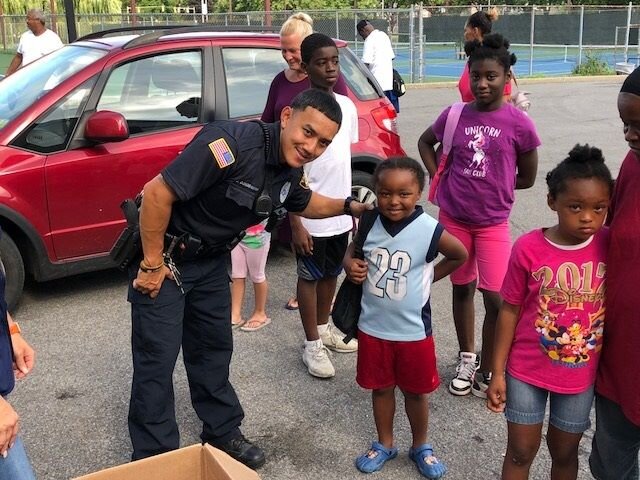Chief Mark Williams says state accreditation puts Utica Police Department 'ahead of game' on police reform, calls for more dialogue with Common Council By Luke Perry
Governor Cuomo recently signed an expansive package of police reform bills adopted by the New York State legislature. Utica Police Chief Mark Williams said “I think we’re actually ahead of the game.”
The Utica Police Department is accredited by the state and were thus required to adopt best practices in policies and procedures regarding use of force, implicit bias training, procedural justice, and other aspects of recent state police reform legislation. 150 law enforcement agencies statewide are currently accredited.
Williams told Talk of the Town (WUTQ in Utica) that police departments “have to be progressive.” Utica Police Department adopted changes before problems arose, so “it’s not going to be a heavy push for us.” Williams thinks smaller agencies and/or those who do not have state accreditation will have more difficulties adapting.
One new reform requires police departments to “reinvent and modernize” tactics with community feedback, and adopt these changes via local law by April, or risk losing state funding.
“We’re always open to improving ourselves,” Williams said. “We have to be careful when we get the input from the public about policy changes. We have to make sure that we still retain the critical accreditation factors in our policies” because without those, the department will lose accreditation.
Williams also said that the committee who will lead this process “has to be educated about what current police practices are, and why we do the things that we do, because it’s important we’re all on the same page.”
“It’s important that we try to improve our police department for the sake of our community,” Williams explained, “but at the same time, it’s got to be a workable solution for everybody.”
Photo by Utica Police Department (2018)
Another new reform eliminated 50-A from the New York state civil code, which prevents police disciplinary records from becoming public. Williams said that 50-A was adopted in 1970s to prevent police officers from being harassed, particularly during a trial to help “get a client off.”
“I understand the need for transparency and we certainly will comply with that,” Williams said. The department is still looking for legal guidance for how to proceed, including what falls under “technical violations,” though personal information will not be released, including medical records, social security numbers, and home addresses.
Utica Common Council member Celeste Friend recently proposed an ordinance, the Police Transparency and Accountability Act of 2020, requiring the public release of personnel records related to performance evaluations and promotion.
“I have seen recently our Common Council members, who are well intended, they put up this legislation, that affect public safety,” Williams said. “My concern is that they’re not talking to public safety before they put these legislation out to the public. It would nice to know what your police department does, or doesn’t do, before you try to create legislation to correct something that may not need to be corrected.”
Utica Mayor Rob Palmieri has stated that personnel records for all police officers will be made public on the city’s website, beginning with Chief Williams and the deputy police chief. “My administration and the Utica Police Department recognize that transparency and substantive engagement are critical for police legitimacy and acceptance in the eyes of the community it serves,” Palmieri said.
Luke Perry (@PolSciLukePerry) is Professor of Government at Utica College






